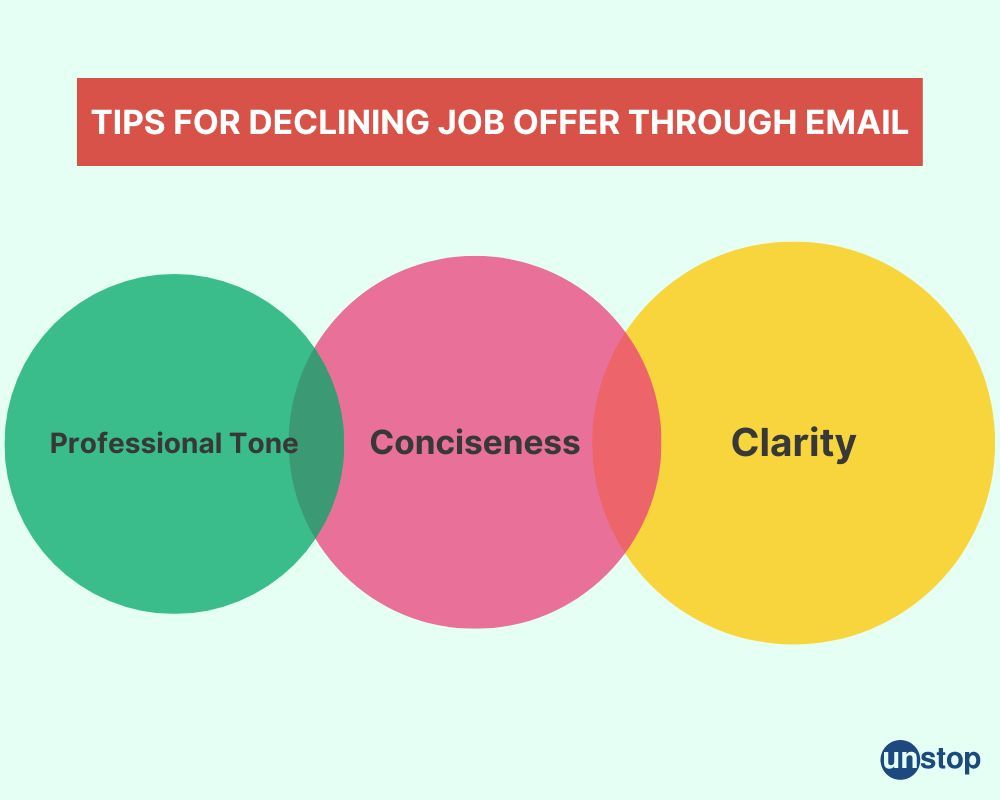- Self-Introduction For Freshers: Importance
- Components Of An Effective Self-Introduction
- How To Craft A Compelling Self-Introduction
- Self-Introduction for Freshers: Samples
- How To Highlight Your Qualifications & Experiences
- Incorporating Personal Interests & Future Plans
- Mastering Verbal & Non-verbal Communication Techniques
- Tailoring Your Introduction For Different Job Roles
- Common Mistakes To Avoid During Self-Introductions
- Conclusion
- Frequently Asked Questions (FAQs)
- Importance Of Extracurricular Activities In Resumes
- Types Of Extracurricular Activities To Include
- Best Extracurricular Activities For Different Fields
- Listing Extracurricular Activities In A Resume
- Adding Activities In The Education & Achievement Sections
- Soft Skills Gained From Extracurricular Activities
- Tailoring Activities Relevant To The Job Application
- Tips For Effective Inclusion Of Extracurricular Activities In Your Resume
- Frequently Asked Questions (FAQs)
- Importance Of Declining A Job Offer Respectfully
- Politely Decline A Job Offer With Gratitude
- Practical Tips For Declining Through Email
- Declining A Job Offer Over The Phone
- Declining After Acceptance Of Job Offer
- Salary, Timing, & Other Offers As Reasons
- Positive Relationship After Declining
- Frequently Asked Questions (FAQs)
- What is a Salary Increment?
- Factors Affecting Salary Increment
- Procedure for Salary Increment
- Formula to Calculate Salary Increment
- Formula to Calculate Salary Increment Percentage
- Benefits of Salary Increment
- How to Negotiate A Fair Salary Increment
- Importance Of Transparency In Salary Increments
- Making Better Financial Plans After Salary Increment
- Resignation After or Before Salary Increment
- Frequently Asked Questions (FAQs)
- Job Offer Acceptance Letter: Meaning & Importance
- Key Components of a Job Acceptance Letter Explained
- Job Offer Acceptance Letter Template
- Accepting a Job Offer via Email: Important Tips
- Job Offer Acceptance Letter Samples
- Composing A Job Offer Acceptance Letter: Key Tips
- Post-Acceptance Protocol
- Conclusion
- Frequently Asked Questions (FAQs)
- What is a Provisional Certificate?
- Provisional Certificate Application Process
- Sample Of A Provisional Certificate
- Benefits Of a Provisional Certificate
- Conclusion
- Frequently Asked Questions (FAQ)
- Definition Of Your Current CTC & Expected CTC
- Factors To Consider During Salary Negotiation
- Tips & Examples To Answer What Salary Do You Expect
- Understanding How Your CTC Is Calculated
- Crafting & Presenting Your Current CTC Effectively
- How To Write Current CTC & Expected CTC In Email
- Analyzing Detailed Breakdown Of Your CTC
- Conclusion
- Frequently Asked Questions (FAQs)
- Definition & Purpose Of Notice Period
- Importance Of Notice Period
- Types Of Notice Period
- Tasks & Expectation During Notice
- Notice Period Format Sample
- Other Aspects Related To Notice Period
- Conclusion
- Frequently Asked Questions (FAQs)
- Most Common Reasons for Job Change
- Current Trends Influencing Job Changes (2024-2025)
- Tips to Craft Your Best Answer for Job Change
- Conclusion
- Hard Work Vs Smart Work- Difference
- Examples Of Hard Work Vs Smart Work
- Ways To Hone Your Smart Work Skills
- Utilizing SMART Goal Approach
- Essence Of Hard Work
- Essence Of Smart Work
- Combining Benefits Of Hard & Smart Work
- Enhancing Efficiency Work Approach
- Closing Thoughts
- Frequently Asked Questions
- Defining What Is Probation Period
- Activities During The Probation Period
- Salary During The Probation Period
- Importance Of Completing The Probation Period
- Probation Period Extension Explained
- How To Successfully Complete Probation Period
- Closing Thoughts
- Frequently Asked Questions (FAQs)
- Definition & Its Origin Of Garden Leave
- What Happens To An Employee During Garden Leave?
- Advantages Of Garden Leave
- Disadvantages Of Garden Leave
- Duration Of Garden Leave & Its Impact
- Identifying Employees Suitable For Garden Leave
- Best Time To Use Garden Leaves
- When To Avoid Gardening Leave
- Consequences Of An Employee Declining Garden Leave
- Employers' Guide To Making The Most Of Garden Leave
- Rights And Obligations Under Garden Leaves
- Summary
- Frequently Asked Questions (FAQs)
- What is an Interview?
- What Do Companies Look For During An Interview?
- Types Of Interview Formats
- Types Of Interview Questions
- Interview Tips For Freshers
- Conclusion
- Frequently Asked Questions (FAQs)
- Group Discussion & Its Purpose Explained
- Importance Of Group Discussion
- Types Of Group Discussion
- Characteristics Of Group Discussion
- Skills And Success Tips Of Group Discussion
- Mistakes & Topics To Avoid In Group Discussion
- Final Remarks
- Frequently Asked Questions
- Understanding What Job Application Is
- Nitty Gritty Of Job Application
- Step-by-step Guide On How To Apply For A Job
- Effective Tips For Job Applicants
- Conclusion
- Frequently Asked Questions (FAQs)
- Significance Of Emailing Your Resume
- What To Write In An Email When Sending A Resume
- Samples Emails When Sending A Resume
- Final Remarks
- Frequently Asked Questions (FAQs)
- Decoding Dress Code For Interview
- Interview Dress Code For Men
- Interview Dress Code For Women
- Outfits To Be Avoided For A Job Interview
- Conclusion
- Frequently Asked Questions (FAQs)
- Understanding Biodata in Job Applications
- Crafting an Effective Biodata for Your Job Search
- 10 Tips for an Effective Biodata
- Biodata vs. Resume vs. CV: Understanding the Differences
- Understanding a Biodata Format (Sample Template)
- Frequently Asked Questions (FAQs)
- Creating An Appealing Resume For Job Search
- 7 Types Of Resumes For Job Application
- Tips For Crafting An Effective Resume
- Conclusion
- Frequently Asked Questions (FAQs)
- Definition Of CTC
- Understanding The Components Of CTC
- Formula To Calculate CTC
- Example Of CTC Breakdown
- Benefits Of Cost To Company
- Understanding Gross Salary And Net Salary
- Conclusion
- Frequently Asked Questions (FAQs)
- Understanding Your Ambition In Life
- How To Answer The Question During Interview
- Do’s And Don'ts While Answering The Question
- Examples Of Sample Answers
- Summary
- Frequently Asked Questions
- Definition & Purpose Of An Apology Letter
- Understanding The Basic Components
- Knowing When To Write
- Tips To Craft An Effective Apology Letter
- Mistakes To Be Avoided
- Example & Format Of An Apology Letter
- Summary
- Frequently Asked Questions
- What Is A Job & What Is Leaving A Job
- Top 10 Reasons For Leaving A Job
- How To Prepare When Planning To Leave A Job
- Tips To Explain Your Departure To Your Employer
- Sample Answers For Leaving A Job
- Conclusion
- Frequently Asked Questions (FAQs)
- Annual Income & Calculation Explained
- Formula For Annual Income Calculation
- Examples Of Annual Income Calculation
- Gross Income Vs. Net Income
- Conclusion
- Frequently Asked Questions
- Understanding What Is Severance Pay
- Importance Of Understanding Severance Pay
- Why Companies Offer Severance Pay
- Essential Components Of Severance Package
- Eligibility Conditions For Severance Packages
- Tax Implications Of Severance Pay
- Conclusion
- Frequently Asked Questions (FAQs)
- Understanding A Job Application Letter
- Format Of A Job Application Letter
- Importance Of A Well-Crafted Application Letter
- Tips For Crafting A Compelling Job Application
- Sample Letters For Various Profiles
- Conclusion
- Frequently Asked Questions (FAQs)
- Meaning Of Job Profile & Purpose
- Key Components Of A Job Profile
- Benefits Of Job Profiles For Employers
- 5 Best Tips For Crafting An Effective Job Profile
- Common Pitfalls To Avoid In Job Profile Descriptions
- Job Profile Vs Profile Summary
- Summary
- Frequently Asked Questions (FAQs)
- Understanding Full and Final Settlement
- Components of Full and Final Settlement
- Pre-Requisite to Calculating FnF
- Calculating FnF: Process and Timing
- Final Settlement Letters
- Final Remarks
- Frequently Asked Questions
- Definition Of Teamwork Skills
- Types Of Teamwork Skills
- Benefits Of Teamwork Skills
- Strategies For Improvement Of Skills
- Showcasing Teamwork Skills Effectively
- Conclusion
- Frequently Asked Questions (FAQs)
- What are the Barriers of Communication?
- Types of Barriers of Communication
- Top Barriers of Communication: The Most Common Culprits
- Strategies to Overcome Communication Barriers
- Frequently Asked Questions (FAQs)
- Definition & Factors Of Workplace Anxiety
- Recognizing Signs & Symptoms Of Anxiety
- Strategies & Tips To Handle Workplace Anxiety
- Summary
- Frequently Asked Questions (FAQs)
How To Reject A Job Offer Politely | Email And Phone Tips

Navigating the delicate process of rejecting a job offer requires finesse and clarity. Understanding the steps involved can alleviate stress and maintain professionalism throughout the interaction.
From crafting a gracious response to declining gracefully, knowing how to reject a job offer respectfully is essential in preserving relationships and your reputation within the industry.
Importance Of Declining A Job Offer Respectfully
Let us look at the importance of declining a job offer respectfully:
Importance Of Professionalism
Rejecting a job offer politely is essential for maintaining positive relationships in the professional world. It showcases your character and professionalism, leaving a lasting impression on potential future employers.
Maintaining professionalism during the job offer rejection process can demonstrate your maturity and respect for the time and effort invested by the employer throughout the hiring process.
Leaving Doors Open
A respectful decline of a job offer can also leave doors open for potential opportunities down the line. Even though you may not be accepting their current offer, expressing gratitude for the opportunity shows that you are open to potentially working together in the future.
This positive interaction could lead to networking opportunities or even consideration for other roles within the company.
Find the right fit. Unlock endless job & internship opportunities!

Politely Decline A Job Offer With Gratitude
Let us see how you can politely decline a job offer with gratitude:
Express Gratitude
When rejecting a job offer, expressing gratitude for the opportunity is vital. Show your appreciation to the hiring manager for considering you and appreciating the offer.

It's essential to be sincere when expressing gratitude. A simple "Thank you for the offer" at the beginning of your message sets a positive tone.
Mention specific aspects of the interview process or company that you found valuable, such as insightful conversations with team members or learning about their innovative projects.
State Decision
Clearly stating your decision is key when declining a job offer. Be direct and respectful in your communication by clearly mentioning that you are reducing the offer. Avoid ambiguity or leaving room for misinterpretation.
In your response, maintain clarity by stating that you appreciate the opportunity but have decided to decline due to personal reasons or other commitments.
By being straightforward, you help yourself and the employer move forward efficiently without misunderstandings.
Practical Tips For Declining Through Email
Let us also see some of the practical tips for declining through email:

Professional Tone
Crafting a professional email is crucial when rejecting a job offer. Address the recipient respectfully, use formal language, and express gratitude for the opportunity.
Maintain a polite tone throughout your email. Avoid being overly casual or too blunt in your response to show professionalism and respect for the hiring manager's time.
Conciseness & Clarity
When declining a job offer via email, ensure your message is concise and straight to the point. State your decision clearly without unnecessary details that could lead to confusion.
Keep the email brief by focusing on key points such as expressing appreciation, stating your decision, and offering well wishes to the company. A clear and concise message demonstrates professionalism and consideration towards the employer's time.
Declining A Job Offer Over The Phone
Let us also see how to decline a job offer over the phone:

Prepare In Advance
Before making the call, plan what you will say. This helps avoid sounding unsure or stumbling. Write down key points to mention during the conversation.
It's essential to be clear and concise when declining a job offer over the phone. Express gratitude for the opportunity while politely explaining your decision not to accept it.
Remember, being prepared can help you navigate the conversation smoothly.
Maintain Politeness
During the phone call, maintain a respectful tone throughout. Use phrases like "Thank you for considering me" and "I appreciate your time and effort." Being polite even when declining shows professionalism.
When rejecting a job offer over the phone, brief your explanation if necessary. You can mention that another opportunity aligns better with your career goals or personal circumstances without going into too much detail.
Declining After Acceptance Of Job Offer
It's common for someone new to the workforce to reject a job offer even after saying yes. Let us learn how to decline a job after acceptance of the same professionally:
Notifying The Employer Promptly
If you need to reject a job offer after initially accepting it, it is crucial to inform the employer as soon as possible. Delaying this notification can lead to further complications and inconvenience for all parties involved.
You demonstrate professionalism and respect for the employer's time by promptly communicating your decision.
Apologizing Sincerely
Remember to apologize sincerely for any inconvenience caused when conveying your decision. Acknowledging the impact of your choice on the employer shows empathy and understanding.
While declining a job offer may not be ideal, expressing regret can help maintain a positive relationship despite the circumstances.
Salary, Timing, & Other Offers As Reasons
Providing valid explanations for turning down a job offer is crucial:
Being Honest About Salary
If salary is the primary reason for rejecting a job offer, it's crucial to be honest yet tactful. You can express your concerns by mentioning that the offered salary doesn't align with your expectations or industry standards.
It's essential to convey gratitude for the opportunity while respectfully declining due to compensation reasons. Express appreciation for the offer but politely explain that you need a salary that matches your skills and experience.
Politely decline if there isn't room for negotiation on this aspect. Remember, honesty delivered with professionalism is key in such situations.
Addressing Timing Issues
When timing becomes an obstacle in accepting a job offer, explain any conflicting commitments or personal circumstances affecting your decision. Be transparent about why the timing isn't right for you now without divulging unnecessary details.
Politely acknowledge the opportunity presented by expressing gratitude, but emphasize that current circumstances prevent you from committing to the role.
Positive Relationship After Declining
It is essential to keep a positive relationship even after declining a job offer:
Be Grateful To Your Employer
After declining a job offer, it's crucial to thank the employer again for their time and consideration. This simple act shows appreciation for the opportunity presented.
It is important to reiterate your gratitude for being considered for the position. Expressing thanks helps leave a positive impression even after turning down the offer.
Express Interest In Future Opportunities
Expressing your interest in staying connected for future opportunities is vital for maintaining a positive relationship with the employer. Doing so keeps doors open for potential collaborations down the line.
Staying Connected
Regularly checking in with contacts or sending occasional updates can help nurture these professional relationships. It shows that you value their connection beyond just a job offer rejection.
Even if this particular opportunity didn't work out, keeping communication channels open could lead to other possibilities in the future.
Conclusion
Understanding the importance of respectfully declining a job offer, expressing gratitude while navigating the situation, and maintaining positive relationships is crucial when rejecting an offer. Maintain professionalism in all interactions when leaving a job offer.
Crafting polite emails, handling phone conversations tactfully, and keeping communication clear and timely are key. Expressing the reasons for rejection can leave doors open for future opportunities. Always strive to build and maintain strong professional relationships throughout your career.
Frequently Asked Questions (FAQs)
1. How important is it to decline a job offer respectfully?
Maintaining professionalism when declining a job offer is crucial as it reflects your character and may impact future opportunities. Respectful communication also helps uphold positive relationships in the professional world.
2. What are some common reasons for politely declining a job offer?
Common reasons include:
-
Salary discrepancies.
-
Timing conflicts with other offers or personal commitments.
-
Realizing that the role aligns differently from your career goals.
It's essential to express these reasons diplomatically to avoid burning bridges.
3. Is it better to decline a job offer via email or phone?
The method of declining a job offer depends on personal preference and the level of rapport established with the employer. Email offers a formal written record, while a phone call allows for more immediate feedback and personalized communication.
4. How can one maintain a positive relationship after rejecting a job offer?
Express gratitude for the opportunity, provide constructive feedback, and emphasize your continued interest in potential future collaborations. Professionalism and courtesy go a long way in preserving relationships even after turning down an offer.
5. Why is timely and clear communication essential when rejecting a job offer?
Timely responses demonstrate respect for both the employer's time and other candidates who might be considered for the position. Clear communication helps manage expectations effectively, allowing all parties involved to move forward promptly.
Suggested reads:
- Self Introduction For Freshers | Importance, Components & Tips
- Extracurricular Activities In Resume For Freshers | Types & Tips
- Resume Summary That'll Take Your Resume To The Next Level!
- 8 Top Tips to Write Subject For Email For Job Application
- Netizens Call Her The 'Best Boss' For Her 'Perfect Email'
Instinctively, I fall for nature, music, humor, reading, writing, listening, traveling, observing, learning, unlearning, friendship, exercise, etc., all these from the cradle to the grave- that's ME! It's my irrefutable belief in the uniqueness of all. I'll vehemently defend your right to be your best while I expect the same from you!
Login to continue reading
And access exclusive content, personalized recommendations, and career-boosting opportunities.
Subscribe
to our newsletter















Comments
Add comment